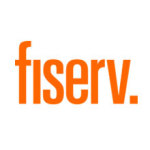Next-generation virtual data room launched by Drooms
No more drowning in tons of paper and receiving eye-watering bills from lawyers – Drooms introduces a brand new virtual data room, Drooms NXG. The work is a result of a two-year development, says Jan Hoffmeister, managing director and co-founder of Drooms, and features self-learning software and automatic translation from core European languages to English.
A virtual data room is indispensable when it comes to analysing documents and data on complex transactions like M&A, fund-raising initiatives, IPOs and commercial real estate contacts, says Hoffmeister.
“Our main driver is to make due diligence more effective and cost-efficient for all the parties involved,” Hoffmeister says. “Imagine a private equity purchase. A number of different parties are interested to buy the assets, each with their own group of lawyers having to go through 100,000-200,000 pages of legal documents. Imagine the associated costs.”
Drooms NXG was brought to market in October this year. It is now being piloted by a number of users, Hoffmeister confirms.
Live and (self) learn
In addition to the increased automation (and hence less time required to find and process the data), the new platform introduces “intuitiveness to transactions” thanks to the self-learning algorithms, says Hoffmeister.
There is now an automated validation process in place, whilst in the past a user had to read the papers on screen and take notes. The more work is done with the documents, the smarter and more refined the tool becomes in finding the right information.
Speaking the same language
A new feature is real-time translation from all core European languages into English. This feature, points out Hoffmeister, is not available in competitors’ offerings at present.
“Translating documents into different languages takes up a lot of time and costs for language specialists are high, even for less relevant documentation,” he comments. Drooms NXG offers a direct machine-based translation of documents uploaded to the data room.
Seek and you will find
The new platform also boasts a “comprehensive search function”, which is essential in finding “the most important information contained in the data flow”.
By entering the desired search term, an optical character recognition (OCR) search of all index descriptions and document content is carried out in the data room for this key word, any synonyms and similar search terms. Any hits are then flagged up to users.
Red flags
A key objective of due diligence is identifying major risks, says Hoffmeister. These are known as “red flags”. Drooms NXG has an auto red-flag feature – with the platform’s algorithms being able to independently analyse the content of a data room and filter out the relevant information to enable user-based assessment.
An overview of the results, enables users to promptly evaluate potential risks and opportunities, and process the information further.
This is where self-learning software comes into play, says Hoffmeister. This is a unique feature, the first of its kind, he states.
It’s all about you
Hoffmeister emphasises that the solution is user-centric. “To benefit from digitisation – to save time and increase profitability – it is vital to ensure that any technical developments place users and their workflow at the heart of processes.”
Drooms was founded in 2001 by Hoffmeister, a former corporate finance and M&A manager at Siemens, and Alexandre Grellier, a former lawyer at Lehman Brothers.
Initially, it offered physical data rooms for transactions. The real goal, however, was to digitise this process and offer a fully-fledged online due diligence platform, Hoffmeister recalls, and as soon as technology allowed Drooms’ platform went virtual.
25,000 companies worldwide use Drooms’ digital platform today, with Swiss banking giant UBS among key clients.
The company originates in Germany and has offices in Frankfurt, London, Zug, Paris, Amsterdam, Vienna, Madrid and Milan.










































